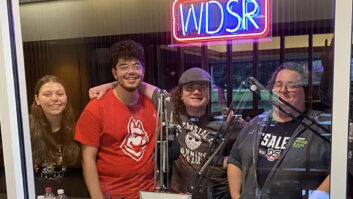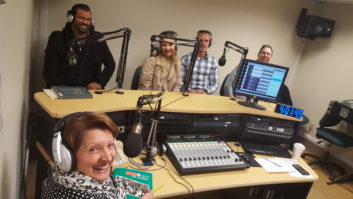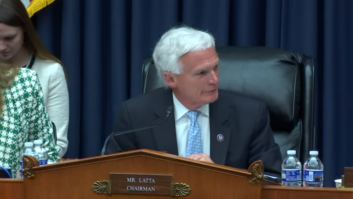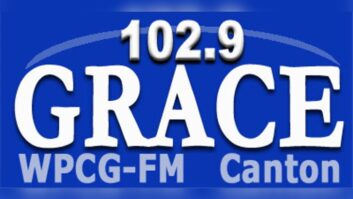Radio and the Social Internet
May 1, 2012 1:00 AM, By Lee Petro
While attending the 2012 NAB Show in Las Vegas I was part of a panel discussion on the use of social media by radio and television stations. Many stations have been enhancing their presence on the Internet by setting up Facebook pages, tweeting station updates, and encouraging employees to create blogs.
However, as stations move more of their content online, and encourage online exchanges with their audience, there are new responsibilities. Stations have to remember to comply with the FCC’s regulations that apply to station promotions and contests run on stations and the website at the same time. A recent FCC enforcement raises new concerns for the promotion of a Web-only contest advertised on the station’s website.
Moreover, as stations interact with their audience, regulations promulgated by the Federal Trade Commission are implicated, as are copyright concerns raised when stations seek audience posting of content that may, or may not, be of their own creation. While there is an endless flow of permutations regarding these issues, here are some issues that stations must confront.
FCC Regulations
Hopefully, all stations are aware of the Commission’s rules relating to contests and promotions. The Commission requires stations to regularly air the rules of contests and to follow those rules in awarding prizes. On many occasions, the Commission has imposed forfeitures and established compliance programs for stations to follow to ensure the station properly educates its staff. Some stations have seen the move to the Internet as an avenue to avoid the FCC’s onerous record-keeping and compliance obligations.
However, a recent decision by the Commission reminds broadcasters they should not stray too far from established FCC practices. Specifically, the FCC applied its contest rules and levied a $22k forfeiture because the station ran on-air advertisements of its Web-based contest directing listeners to go online to enter the contest. The Commission concluded the station violated rules regarding the airing of announcements that disclose the material terms of the contest rules. The Commission reasoned that once the station began promoting the contest over the air, the FCC’s rules became effective. It did not help that the station named the contest winner before the ending date specified in the posted contest rules.
FTC Regulations
The FTC also imposes obligations on websites that affect broadcasters. Many stations have audience fan clubs that collect information from their members and send station news and updates. The FTC gets involved, though, when the information collected comes from children under the age of 13. Not only does the FTC have rules on its books regarding the collection and disclosing of information from children under 13, the FTC has a pending rulemaking to consider tightening its rules to take into account new technology and practices.
In particular, the FTC is considering rules that would expand the definition of information to include geolocation and cookie tracking information. In addition, the FTC is looking at enhanced mechanisms, such as video chatting and collecting parental consent forms prior to allowing websites to collect information. Finally, the FTC is also looking at the practice of Data Brokers, shadowy figures that collect and package information for sale to third parties.
Copyright Concerns
Finally, enhanced interaction with a station’s audience means the audience may create copyright concerns for the station. While the station may make every effort to clear the content it places on its station, new liabilities arise when the audience is invited to post content on the station’s website.
For example, it has become a common practice for stations to encourage breaking news information, such as pictures of accidents or traffic. However, stations must make it clear to users that these pictures must be of the their own creation (can not repost from other sources), that the station reserves the right to reuse the pictures posted to its website, and that it reserves the right to remove any content that it deems objectionable. Most importantly, the station should identify a contact person to receive infringement complaints.
These are a few of the issues raised when a station enhances its online presence. Absent from this discussion are the fees owed for streaming a radio station’s signal online, captioning of IP video, and the development of strong privacy statements, which are easily separate columns.
FCC Dateline

May 16, 2012: Stations in Michigan and Ohio continue running License Renewal Pre-Filing Announcements. Stations in Indiana, Kentucky and Tennessee continue running License Renewal Post-Filing Announcements.
June 1, 2012: Stations in Michigan and Ohio file License Renewal Application and EEO Program Report. Commence running License Renewal Post-Filing Announcements. Noncommercial radio stations in Michigan and Ohio file their Biennial Ownership Report (FCC 323-E). Stations in Illinois and Wisconsin begin running License Renewal Pre-Filing Announcements, continuing on June 16, July 1 and 16.
Petro is of counsel at Drinker Biddle & Reath, LLP. Email: [email protected].
May 2012
Inside Dial Global’s radio network, audio production from the field, prior coordination for STLs, a Field Report on the IsoAcoustics ISO-L8R and budget mics for remotes….












